Traveling with children can be an exciting adventure, but it comes with its own set of challenges, especially when it comes to legal paperwork. One such essential document is the minor travel consent form notarized. In this comprehensive guide, we will dive deep into its importance, how to obtain one, and share personal travel experiences to make your journey smooth and enjoyable.
What is a Minor Travel Consent Form?
A minor travel consent form is a legal document that allows a child to travel without one or both parents or guardians. It grants permission for the child to leave their usual residence and can be necessary for domestic or international travel. The notarization of this form adds an extra layer of security and legitimacy, ensuring that unauthorized individuals cannot claim to have permission for the child’s travel.
Why is a Notarized Form Important?
- Legal Protection: Notarization provides a legal backing, which can prevent potential disputes or issues with authorities.
- Travel Requirements: Many airlines, cruise lines, and countries may require notarized consent forms for minors traveling without both parents.
- Peace of Mind: Having this document notarized allows parents or guardians to feel more secure while their child is traveling.
Who Needs a Minor Travel Consent Form?
A minor travel consent form is required when:
- A child is traveling with one parent or another adult.
- A child is traveling internationally without both parents or guardians.
- A child is traveling alone.
Essential Components of the Form
The minor travel consent form should include:
- Child’s full name and date of birth
- Parent(s) or legal guardian(s) full names and contact information
- Traveling adult’s details (name, relationship to the child)
- Itinerary details (dates, destinations, and mode of travel)
- Notary block for notarization
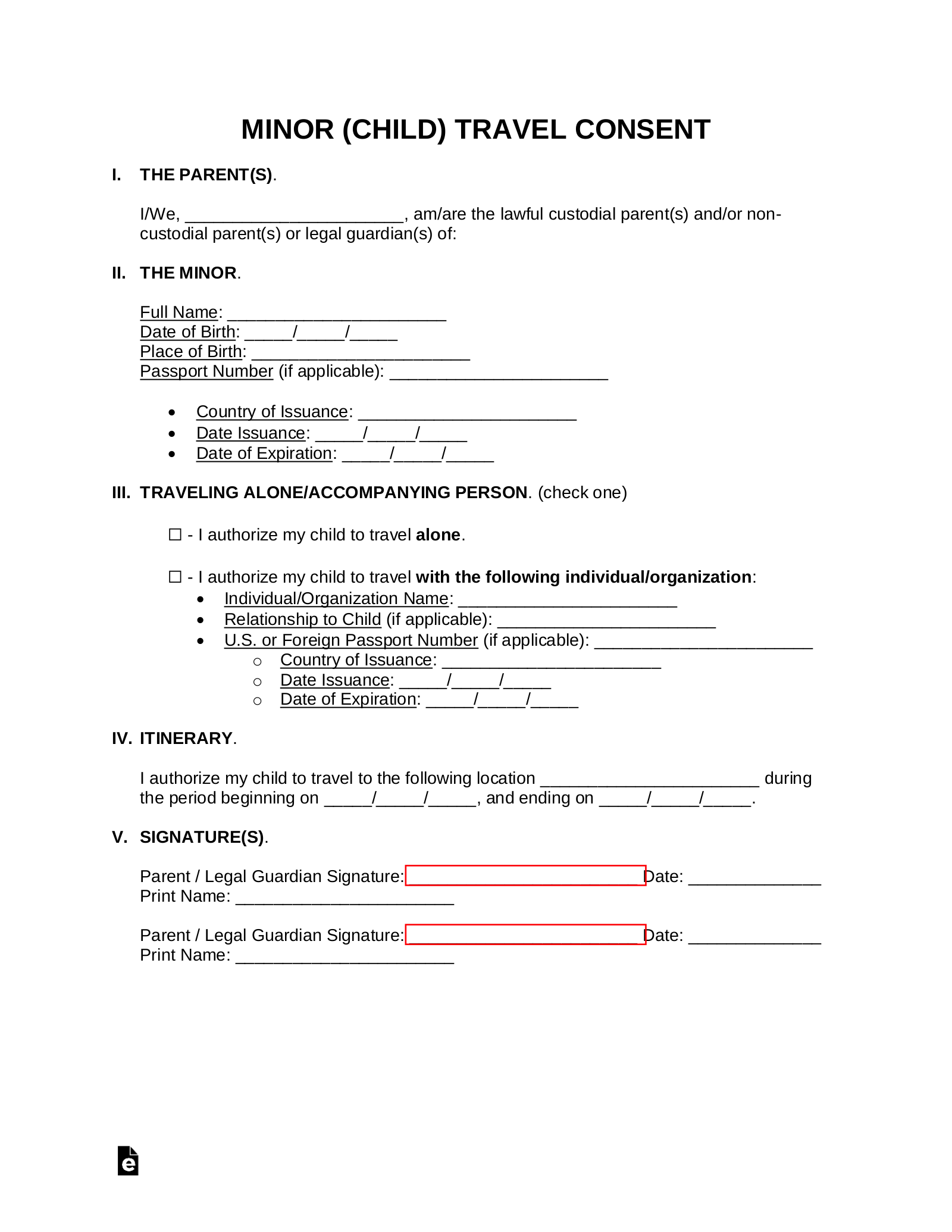
How to Obtain a Minor Travel Consent Form Notarized
Obtaining a notarized consent form involves a few straightforward steps:
Step 1: Draft the Consent Form
You can find templates online, or create your own. Ensure that all information is accurate and complete.
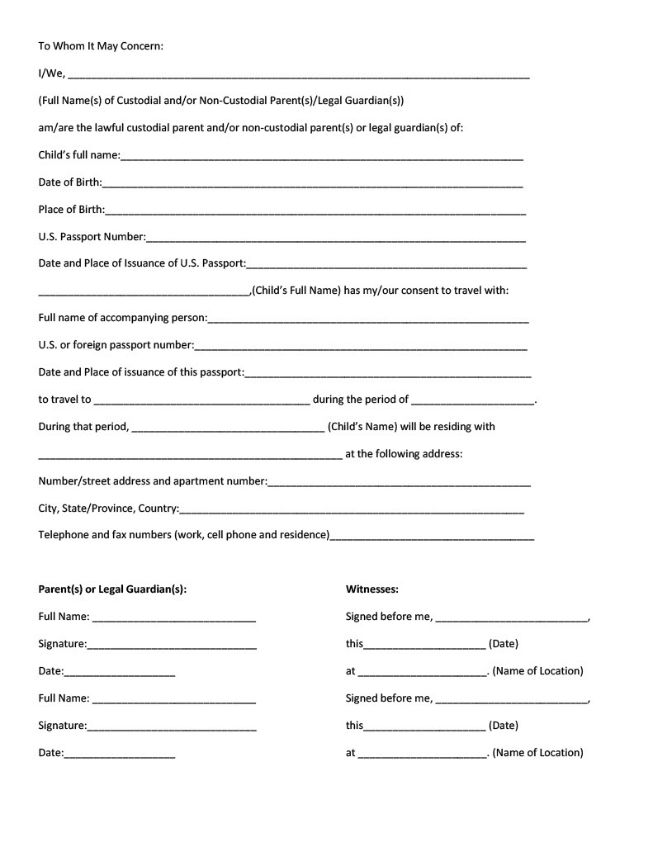
Step 2: Gather Required Identification
Both parents (or guardians) should provide valid photo identification when meeting with the notary to confirm their identities.
Step 3: Visit a Notary Public
Schedule an appointment with a notary public. You can find notaries at banks, law offices, or dedicated notary services. Bring the consent form and your IDs.
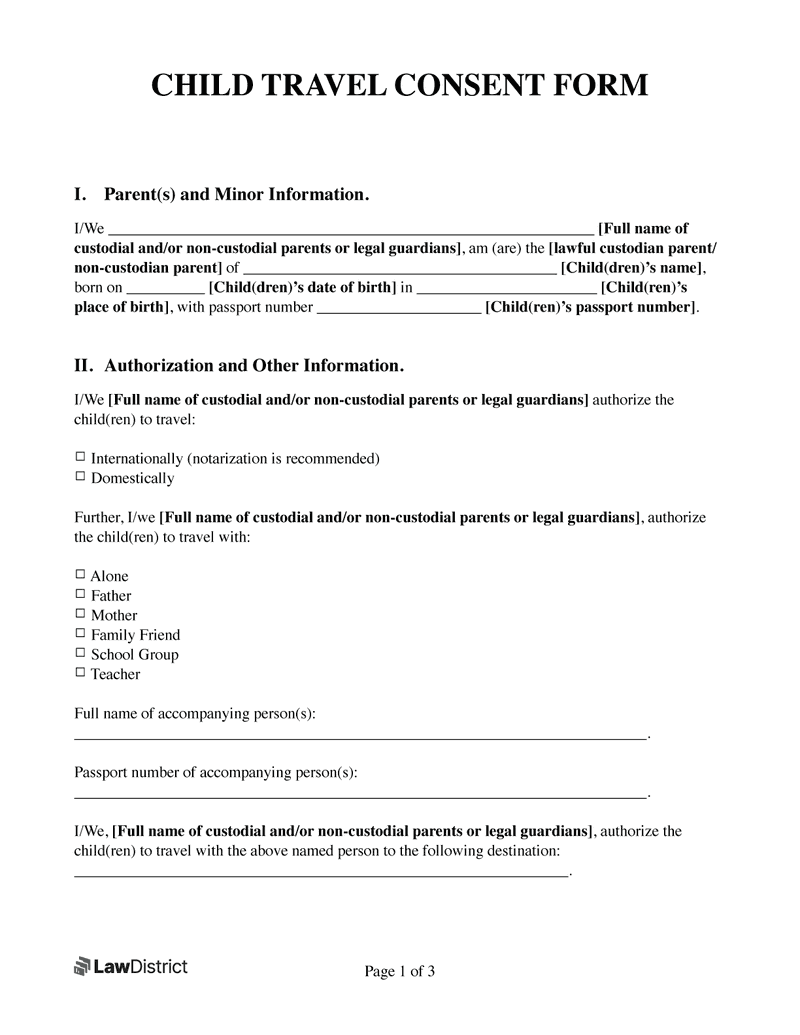
Step 4: Acknowledge the Document
All parties involved must sign the document in the presence of the notary, who will then notarize it.
General Travel Tips for Traveling with Minors
- Prepare Travel Documents: Ensure all necessary documents, including the notarized consent form, are readily accessible.
- Pack Smart: Involve your child in packing their own bag to ensure they have everything they need.
- Plan Ahead: Whether it’s selecting family-friendly accommodations or choosing destinations with kid-friendly activities, planning will make your travel smoother.
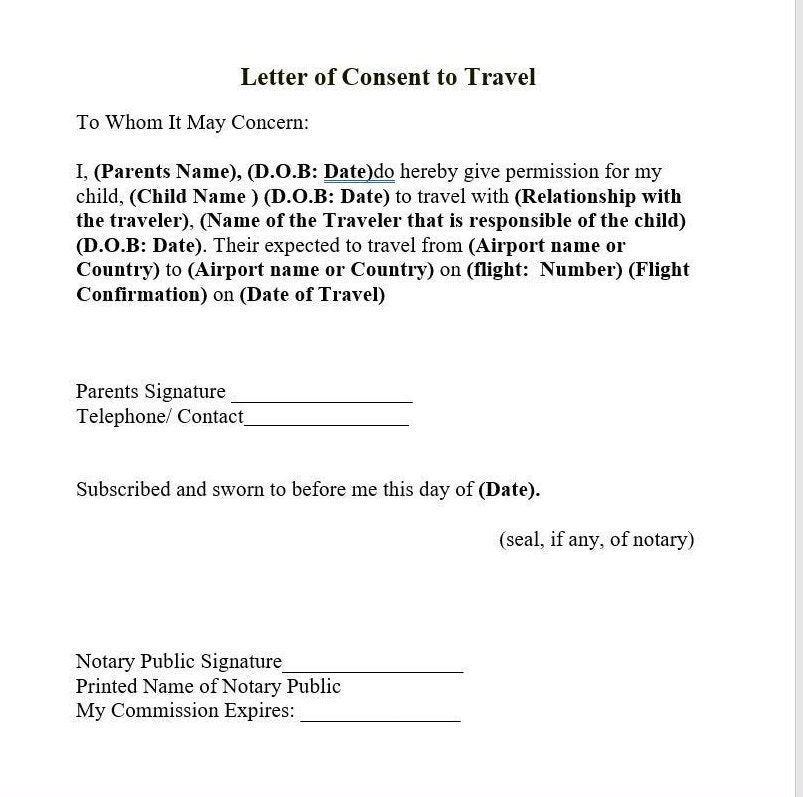
Destination Highlights for Family Travel
Top Family-Friendly Destinations
| Destination | Activities | Age Suitability |
|---|---|---|
| Orlando, Florida | Theme parks, water parks, shopping | All ages |
| San Diego, California | Beaches, zoo, interactive museums | All ages |
| Washington, D.C. | National museums, monuments, parks | Age 5+ |
| New York City, New York | Theater, museums, parks | Age 6+ |
| Paris, France | Landmarks, parks, kid-friendly attractions | All ages |

Pros and Cons of Traveling with Minors
Pros
- Creates lasting family memories and bonds.
- Teaches children about different cultures and experiences.
- Encourages children to learn and adapt to new environments.
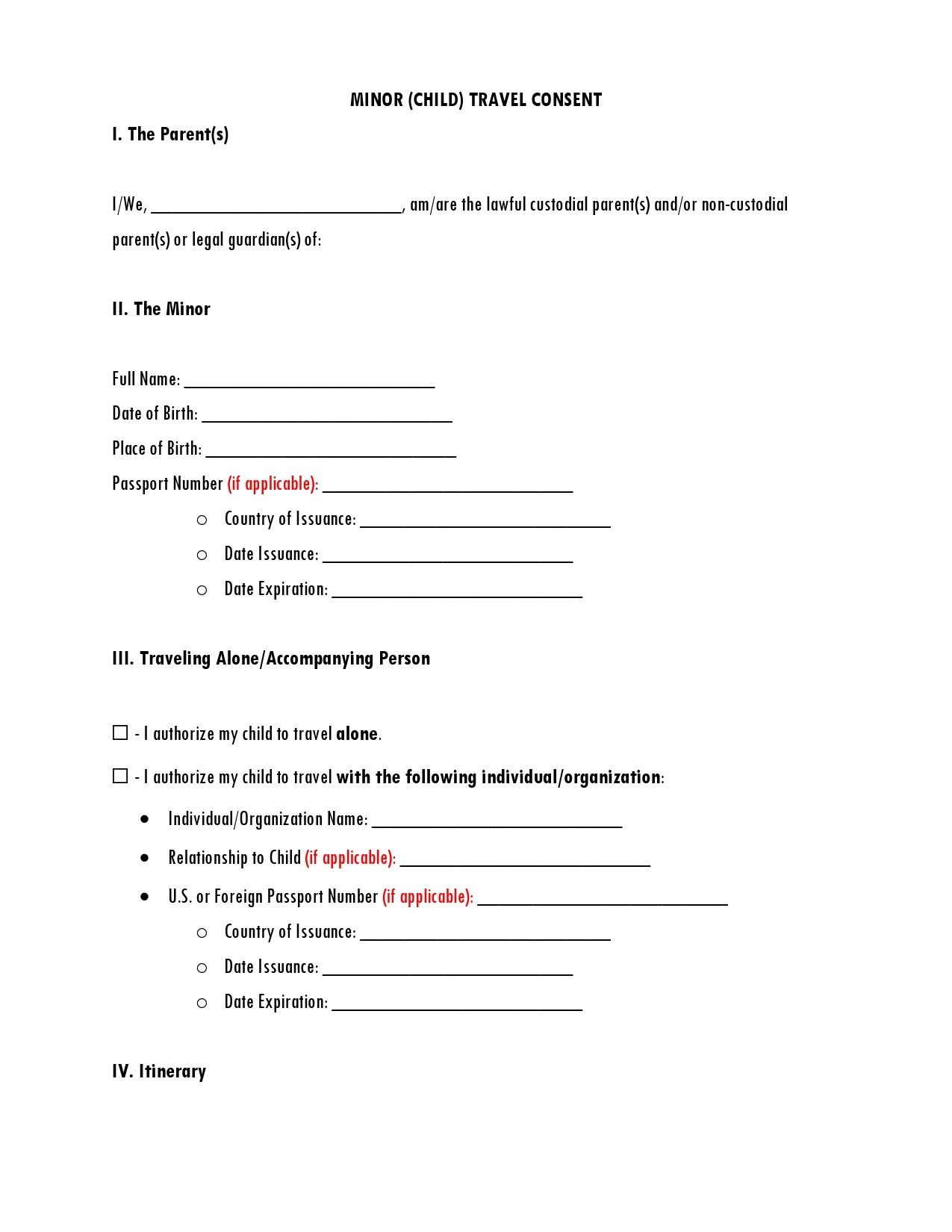
Cons
- Requires additional planning and paperwork, such as the notarized consent form.
- Traveling can be stressful and exhausting, especially for younger children.
- Potential for emergencies requiring quick decisions.
Personal Travel Experience: Traveling with My Child
Last summer, my family and I took a trip to San Diego. It was the first time we traveled as a family of three, and I was a bit anxious about all the preparations. Ensuring I had the minor travel consent form notarized added to my peace of mind. Upon arrival, my child was absolutely enamored with the San Diego Zoo. Watching their wide-eyed amazement as they saw towering giraffes and cheeky monkeys was priceless.
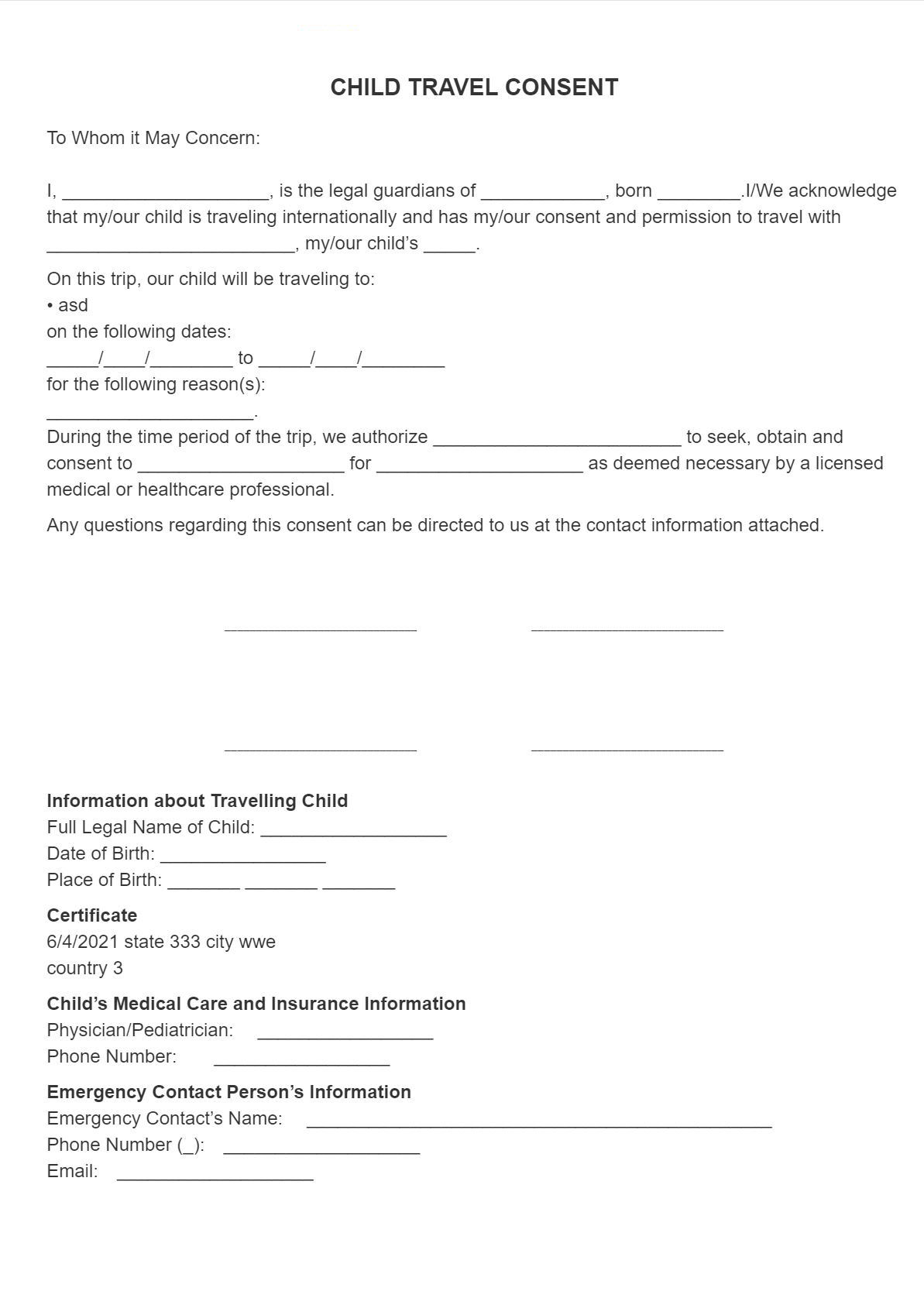
On the beach, we built countless sandcastles and splashed in the waves, creating memories I’ll cherish forever. The experience taught me that while planning is crucial, the joy of traveling with my child is what made the trip worthwhile.
FAQs About Minor Travel Consent Form Notarized
What is the cost for notarizing a consent form?
The cost for notarization can vary, generally ranging between $5 to $25 per signature, depending on the notary’s location and services offered.
Is a notarized consent form required for all types of travel?
While not always required, it is highly recommended for international travel and when a minor is traveling without one or both parents.
Can I use a digital notarization service for the form?
Yes, many states now allow for online notarization. However, always check local laws and requirements before proceeding.
How long is the minor travel consent form valid?
The validity of the form can depend on its specific terms; however, it is generally accepted for the duration of the trip as stated in the form.
Conclusion
In conclusion, a minor travel consent form notarized is an essential element for ensuring a safe and legally compliant travel experience with children. With proper planning, your family trips can become not just enjoyable adventures but also enriching experiences that foster growth and connection. So, as you prepare for your next journey, make sure you have all your documents in order and enjoy making memories with your loved ones!